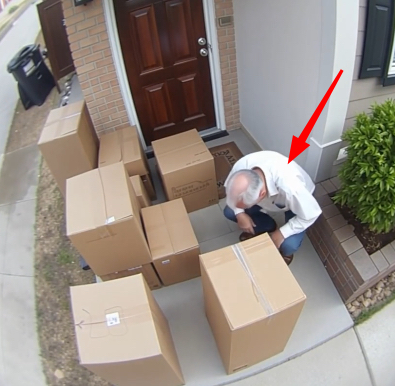 As I stood there, feeling both heartbroken and bewildered, an old friend from the neighborhood, Mrs. Anderson, happened to walk by. She recognized me immediately and rushed over, concern etched on her face. “What happened?” she asked gently, noticing the tears that I could no longer hold back.
As I stood there, feeling both heartbroken and bewildered, an old friend from the neighborhood, Mrs. Anderson, happened to walk by. She recognized me immediately and rushed over, concern etched on her face. “What happened?” she asked gently, noticing the tears that I could no longer hold back.
I recounted the painful series of events to her, my voice shaky with emotion. Mrs. Anderson, a kind soul who had lived next door for decades, listened intently. She was shocked to hear about my daughter’s actions and offered me a comforting embrace. “You can’t stay here like this,” she said softly. “Come inside for a cup of tea, and we’ll figure something out.”
Inside her cozy home, surrounded by familiar photos and the comforting aroma of freshly brewed tea, I began to feel a little less alone. Mrs. Anderson was a widow herself and understood the challenges of aging. As we talked, she suggested a few options: reaching out to community services, contacting a lawyer for advice about my housing rights, and even considering moving in with her temporarily until we could sort things out.
While her generosity warmed my heart, I couldn’t shake the feeling of betrayal. My daughter, the one person I had thought I could rely on, had turned her back on me. It was difficult to process, and the pain cut deep. Nevertheless, Mrs. Anderson’s presence was a balm to my wounded spirit, and her practical suggestions gave me a glimmer of hope.
As the evening wore on, she helped me call a local elder care advocate who promised to visit the next day and discuss my situation. We also contacted a lawyer who specialized in elder law, hoping to understand my rights and whether there was any way to reclaim my home.
Despite the emotional turmoil, I realized how fortunate I was to have someone like Mrs. Anderson by my side. Her kindness reminded me that not everyone had abandoned me, and that sometimes help comes from the most unexpected of places.
The following day, as promised, the elder care advocate arrived. She was empathetic and knowledgeable, assuring me that I had options and that there were systems in place to support seniors in my predicament. She explained that nursing homes were not the only option and that home care services could be arranged to allow me to stay in a familiar environment, even if it meant finding new accommodations.
The legal advice was also encouraging. The lawyer explained that since I had contributed significantly to the house, there might be a legal basis to contest my daughter’s actions, especially if there was no formal arrangement in place transferring ownership.
Throughout this ordeal, I learned a valuable lesson in resilience and the importance of community. While the path ahead was uncertain, and the pain of my daughter’s actions would take time to heal, I knew I wasn’t alone.
To anyone reading this, I ask for your advice and similar experiences. How do I rebuild my life at 85? How do I come to terms with my daughter’s betrayal while finding a place to call home once more? Any guidance you can offer would be deeply appreciated.